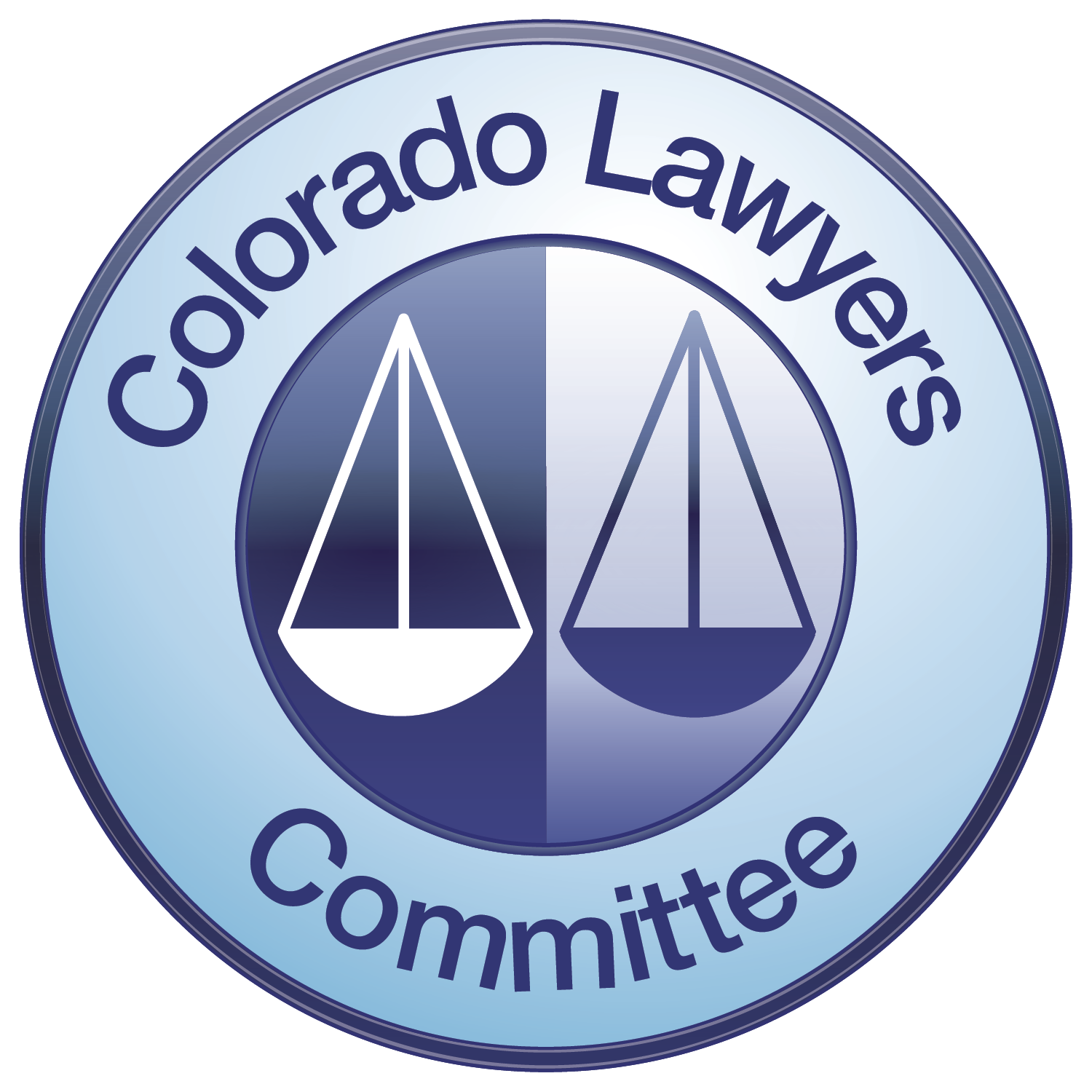Community Development
NONPROFIT LEGAL AUDIT CLINIC
Since 2006, the Colorado Lawyers Committee has co-sponsored a Nonprofit Legal Audit Clinic for small nonprofits with limited operating budgets. Teams of transactional attorneys review a checklist with participating nonprofits to evaluate their legal health. Client meetings are preceded by a CLE training for participating lawyers on Colorado nonprofit law. In 2021, the clinic moved to a virtual format; in February and July of 2021, 100 attorneys assisted 36 nonprofits. We were excited to return in-person at the July 2022 Clinic. Since 2006, more than 700 volunteers have assisted almost 265 small nonprofits in the Clinic!. This clinic is held twice yearly and is co-sponsored with the Association of Corporate Counsel-Colorado Chapter, the Colorado Nonprofit Association, Lewis Roca Rothgerber Christie LLP, and Polsinelli PC.
NONPROFIT MATCH GROUP
Since 2009, this Task Force has provided transactional-type legal services and representation to budget-constrained nonprofit organizations. While the Task Force initially assisted only nonprofits that served children or the indigent, in 2010 the Task Force broadened the scope of its work to include all small nonprofits whose operating budgets do not permit them to retain legal counsel. Since the matching program began, over 500 nonprofits have been served.
SMALL BUSINESS LEGAL ASSISTANCE PROGRAM
In July 2021, Colorado Lawyers Committee partnered with several other organizations to create a new program to assist small businesses (Colorado Small Business Legal Assistance Program). The program is designed to help small businesses (primarily those with 10 or fewer employees) with their economic recovery and success. Volunteer attorneys provide one hour of free legal assistance to answer questions from small businesses on a range of legal issues, including real estate, contracts, employment, government benefits, and bankruptcy. The program is housed at the Colorado Office of Economic Development and International Trade. The other program partners are the Colorado and Denver Bar Associations, the Asian Pacific American Bar Association of Colorado, the Sam Cary Bar Association, the Association of Corporate Counsel-Colorado Chapter, the Colorado Hispanic Bar Association, the Colorado Women’s Bar Association, and Legal Entrepreneurs for Justice. The program has been operating on a limited basis but recently completed its pilot phase. Almost 100 volunteers have signed up to provide assistance and more than 40 small businesses have already received assistance.
HOUSING TASK FORCE
This task force, originally created in late 2013 to identify housing issues in Colorado that might benefit from legal advocacy by Lawyers Committee volunteers, was dormant for several years and revitalized in late 2018. In 2020 and 2021, the Task Force successfully supported bills to protect tenants by sealing eviction records and by prohibiting discrimination by source of rental income. Task Force volunteers also monitored landlord compliance with Colorado’s new law (HB19-1106) which prohibits excessive rental application fees and prevents the landlord from making inquiries about an applicant’s criminal history. In addition, CLC joined a letter urging Governor Polis to extend protections to renters to minimize the devastating impact of the pandemic. In early 2021, the Task Force began to focus its attention on Colorado real estate taxes and the possibility that Colorado counties are using appraisal techniques that result in higher-priced homes being undervalued for tax purposes and lower-priced homes being overvalued. After significant review and discussion, the Task Force concluded that the appraisal techniques were sound.
COMMUNITY DEVELOPMENT HISTORICAL HIGHLIGHTS
HOUSING
2013
The Housing Task Force is created to explore housing issues in Colorado that might benefit from legal advocacy by CLC volunteers.
1988
CLC represents DEFEND (Defend Against Expansion of Freeway Exit in North Denver), a group of largely low and moderate income Hispanic residents of Denver’s Highland neighborhood, in challenging the City’s proposed expansion of the North I-25 corridor.
1981
CLC represents WHERE (We’ll Have Equitable Relocation) and its sister corporation, South Santa Fe Development Cooperative, grassroots organizations made up largely of low-income mobile home residents in the South Santa Fe Drive corridor, when proposed widening of South Santa Fe forces their relocation.
1979
CLC challenges Lakewood housing plans as they relate to low-income and minority residents.
ENVIRONMENTAL
1984
Romer v. Cheney challenges the refusal of the US Department of Defense (DOD) to consider local input on the potential impact of the transportation and storage of nuclear warheads in residential areas. The parties enter into a consent decree requiring a supplemental environmental impact statement.
1979
CLC represents Citizens for Glenwood Canyon Scenic Corridor in a challenge to plans to expand I-70 through Glenwood Canyon. Through negotiations, a river sport advisory committee is established and environmental mitigation measures proceed concurrently with construction of the highway.
NONPROFIT AND SMALL BUSINESS
2006
The Nonprofit Working Group is created to provide legal support for the nonprofit community by identifying pro bono lawyers willing to represent small nonprofits on isolated transactional-type issues.
2006
CLC sponsors a nonprofit legal audit clinic (now offered twice annually) where teams of lawyers work with nonprofits representatives to assess the legal health of the organization.
2002
The CLC Business Task Force offers legal assistance to neighborhoods with high minority populations and collaborates with the Colorado Alliance for Microenterprise Initiatives to present seminars to help micro entrepreneurs identify and resolve their legal needs.
1993
The Nonprofit Task Force provides numerous Colorado nonprofits with transactional, corporate governance, tax, real estate and other legal advice necessary to help them better serve their communities.
1981
CLC volunteers provide incorporation and tax advice to 20 Colorado nonprofits.


